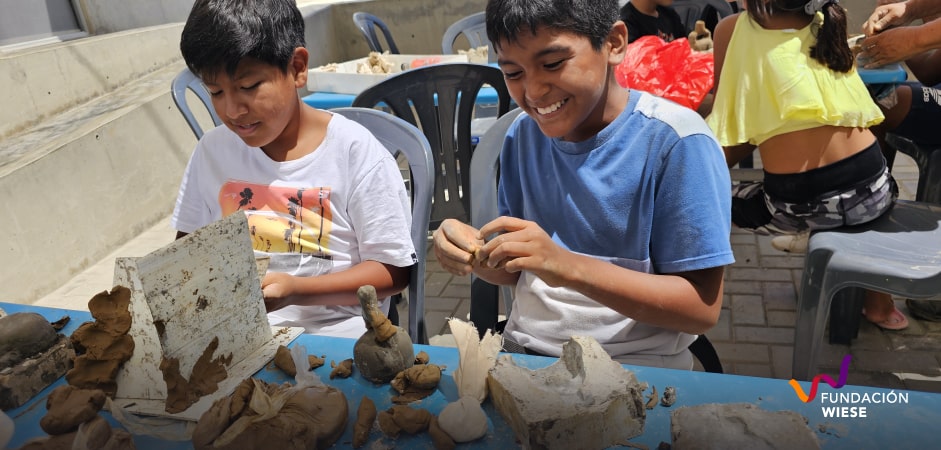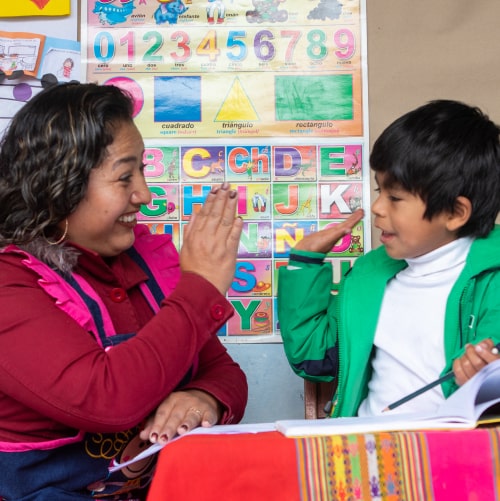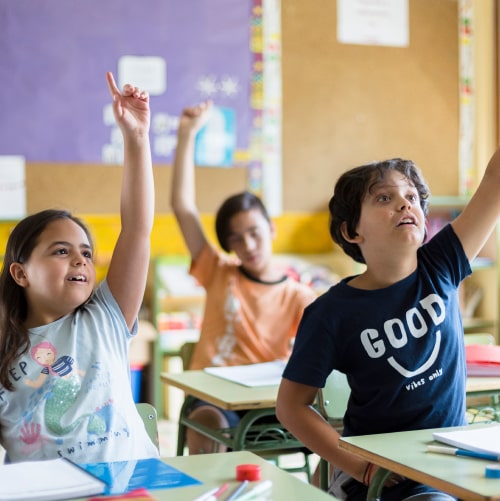World Earth Day is celebrated on April 22. And this is an event that everyone, regardless of our age, must get involved in. After all, this is the planet that we live on, and we are responsible for future generations being able to continue to enjoy its resources.
It is important that we motivate children to celebrate World Earth Day. In this way, we can foster in them the care and protection of our planet, in order to counteract pollution and become aware of the effects of climate change.
How to celebrate World Earth Day with children in our educational communities?
There are many ways to awaken the interest of children in the classroom regarding the conservation and care of the planet. And teachers can incentivize them with some planned activities in the school or classroom. Here are some of them:
Creating a school orchard
School orchards are a great way to teach students about the importance of sustainable agriculture and connecting with nature. They can plant a variety of vegetables and herbs, learning about how they grow and how they contribute to a healthier environment.
Creating a recycling event
This activity allows them to see in a practical way how small actions can have a positive impact on the environment and promote significant change.

An inspiring example is the project carried out by the students of the first year of secondary school of the Educational Institution “Víctor Raúl Haya De La Torre – Roma” in Ascope, La Libertad. They created garbage containers strategically located within their school, with the aim of raising awareness among the entire educational community. These containers featured messages aimed at highlighting the importance of garbage collection and promoting an environmental culture.
Developing a fair with solutions to different environmental problems
By engaging in the search for solutions, students develop research skills, critical thinking, and teamwork. This empowers them by letting them know that their actions and ideas can make a difference in protecting the environment. Besides, sharing their solutions at a fair allows them to educate others and raise awareness about the importance of taking care of our planet.
Organizing a contest inspired by the environment: story, drawing, poetry, etc.
Contests are a fun way to engage children in the environmental issue and encourage their creativity. By participating in competitions of stories, drawing, poetry or other formats, children have the opportunity to express their ideas and concerns about the environment. This helps them develop communication and expression skills, while also giving them a venue to reflect on how they can contribute to a more sustainable future.
Planning a visit to a local farm
A visit to a local farm gives children the opportunity to learn hands-on about sustainable agriculture and the life cycle of animals. By interacting with farmers and animals, children can better understand where their food comes from and how their choices affect the environment. This enriching experience helps them to appreciate the work of local farmers and to make more informed decisions about their consumption, promoting sustainability and support for responsible agriculture in the community.
Disseminating the local flora and fauna of the community
In this way, students understand the environmental reality of their community, and the preservation of its biodiversity is encouraged.
An example of this took place in Sintuco, where a group of students in the first year of secondary school of Educational Institution “81522” sought to raise awareness about the loss of biodiversity due to monoculture in the region, for which he researched and recorded the flora and fauna and developed an interactive talking map derived from their research.

Creating a podcast
A podcast is an excellent idea because it allows students to research, inform and raise awareness about environmental issues, as did a group of first-year secondary school students from Educational Institution “Víctor Raúl Haya de la Torre” in Magdalena de Cao when they created a podcast about the impact of sugarcane burning in their community. With this material they were able to inform the community about this environmental problem, aside from highlighting the importance of environmental action and their commitment to raising awareness about the negative effects of this practice.

Recovering the ancestral know-hows and wisdom of the wise men and women of the community
Ancestral knowledge is of great importance in the face of climate change. Our native cultures have observed the behavior of nature for centuries and developed technologies and practices of adaptation. Among them, the sowing and harvesting of water, cultivation on terraces, conservation of the diversity of seeds appropriate to develop in extreme climates, among others.
The challenges that we face with climate change urge us to rescue the fundamental values of respect and reciprocity towards nature and territory. Our wise men and women have overcome various natural climatic variations, which has allowed them to thrive in their ecosystem.

In the current context and the climate crisis that we are facing, it is important to recognize and take advantage of this knowledge to confront climate change and take care of the planet that we inhabit.
Within the learning experiences, including interviews with wise men and women of the community is essential in order to value and understand that wisdom and knowledge are not only in the classrooms, but that our grandmothers and grandfathers preserve and transmit their knowledge based on practice and accumulated experience.









